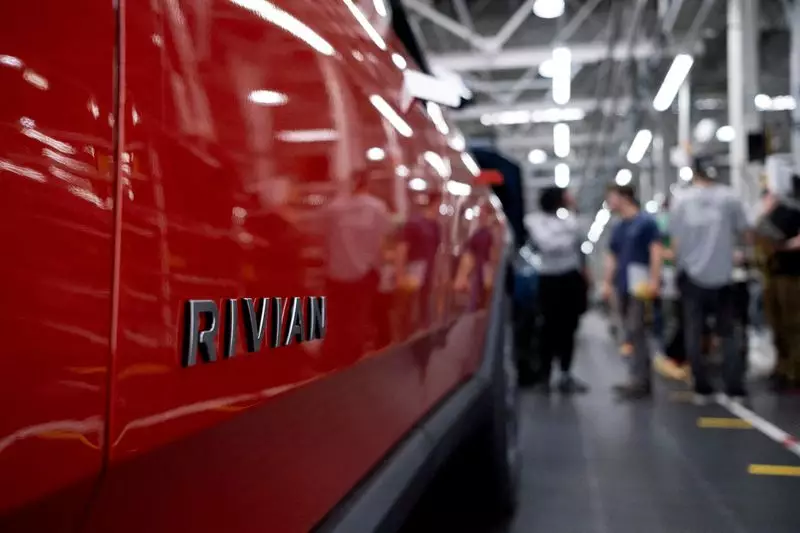The electric vehicle (EV) market is rapidly evolving, prompting established players and new entrants to reconsider their strategies. One of the most significant developments in this space has been the joint venture between American manufacturer Rivian and German automotive titan Volkswagen. Announced last November, this $5.8 billion partnership aims to enhance the electric vehicle capabilities of both companies by sharing Rivian’s cutting-edge software technologies and electrical architecture. As demand for electric vehicles experiences a shift, this collaboration offers a promising path toward innovative solutions and market growth.
The integration of Rivian’s advanced technology is not merely an innovation play; it significantly impacts operational efficiency. Rivian’s streamlined architecture, characterized by a reduction in electronic control units and wiring, stands to lower vehicle weight and simplify manufacturing processes. In an environment where supply chain constraints and rising costs are pressing concerns, both Rivian and Volkswagen benefit from these efficiencies. Rivian executives have noted that this venture enables better negotiations with suppliers, crucial for leveraging economies of scale amid a slowdown in overall EV demand, thereby alleviating some financial pressures.
In a landscape increasingly dominated by electric solutions, established automakers face immense challenges in developing proprietary technologies that cater to modern consumer needs. Rivian’s Chief Software Officer, Wassym Bensaid, remarked on the growing interest from other automakers seeking advanced software solutions. This interest underscores the importance of collaboration as a strategic imperative for players who may struggle to innovate at a pace matching the market’s demands. Automakers looking to enhance their technology capabilities will find Rivian and Volkswagen’s joint venture an attractive entry point to evolve their offerings without incurring excessive costs or delays.
The automotive industry is witnessing a pivotal shift towards software-defined vehicles (SDVs), which are designed for software updates much like smartphones. This transition reflects the necessity for vehicles that deliver enhanced functionality and user experiences. Established manufacturers have often lagged in this arena, creating opportunities for venture partnerships like the one Rivian has formed with Volkswagen. By leveraging Rivian’s technology, Volkswagen and other interested OEMs can access advanced frameworks essential for developing competitive electric offerings.
Looking ahead, the focus for Rivian centers around launching its upcoming R2 model, a smaller, more affordable SUV aimed at capturing an expanding segment of the market. The joint venture is poised to act as a critical collaborator for other OEMs wishing to tap into these technological advancements. Analysts predict that this venture could emerge as a leading platform in the Western EV market, rivaling even the pioneering efforts of Tesla. As the industry continues to evolve, the demand for innovative partnerships like this one underscores the ongoing transformation within the EV sector. Enhanced cooperation among established and emerging players is likely to shape the future landscape of electric mobility.

